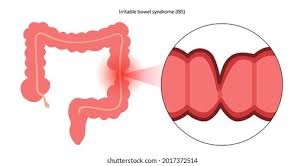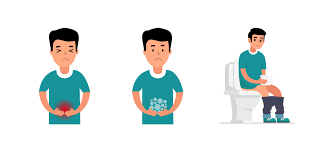Understanding and Managing Irritable Bowel Syndrome with Diarrhea


What Is Irritable Bowel Syndrome with Diarrhea?
Have you ever asked yourself why some people experience frequent, urgent bowel movements and abdominal discomfort after eating even simple meals? This condition is called Irritable Bowel Syndrome with Diarrhea. It affects how the large intestine works, leading to irregular digestion and sudden bowel movements. Although it is not life-threatening, it can cause significant discomfort and distress in daily life.
Key thoughts:
- It involves increased sensitivity of the intestines.
- It can cause bloating, cramping, and urgent diarrhea.
- It is a long-term condition that requires daily management.
- Stress and diet often influence symptom severity.
Understanding this condition is the first step toward restoring digestive comfort and confidence.
Common Triggers and Causes
Why do symptoms appear more in some people than others? The reasons can vary from person to person. The gut and brain communicate constantly, and when this balance is disturbed, it may trigger digestive problems.
Possible causes and triggers:
- Food intolerances such as lactose or gluten sensitivity.
- Stress and emotional changes that affect gut movement.
- Caffeine, fatty foods, and artificial sweeteners.
- Hormonal changes that alter digestion.
- Prior intestinal infections that disrupt gut bacteria.
Learning what causes flare-ups helps reduce discomfort and improve digestive control.
Recognizing Symptoms and Their Impact
People living with this problem often face challenges that go beyond the physical symptoms. The condition can influence emotional health and daily routines.
Main symptoms include:
- Abdominal cramps and pain.
- Frequent loose stools or urgent bowel movements.
- Bloating and gas.
- Fatigue or weakness after bowel activity.
- A constant feeling of incomplete evacuation.
Living with these symptoms can affect confidence and social life, making awareness and proper care essential.
Emotional and Mental Health Effects
Can emotions really affect the gut? Yes. The digestive system reacts strongly to emotional stress and anxiety, which can increase intestinal activity and worsen diarrhea. This close link between mind and body is often called the "gut-brain connection."
Emotional impacts may include:
- Anxiety before meals or social events.
- Frustration from unpredictable symptoms.
- Sleep disturbances from discomfort.
- Reduced concentration or motivation.
Calmness and emotional support can significantly reduce the intensity of symptoms and bring a sense of control.
Lifestyle and Dietary Adjustments
How can small changes improve the condition? Many people notice better results when they adapt their daily habits and eating styles. Consistency and mindful eating play an important role in reducing bowel sensitivity.
Helpful lifestyle steps:
- Eat small, frequent meals instead of large portions.
- Limit caffeine, alcohol, and high-fat foods.
- Include fiber-rich but gentle foods like oats and bananas.
- Stay hydrated and practice regular light exercise.
- Keep a symptom diary to identify trigger foods.
Positive routines can make a lasting difference and help maintain digestive balance.
Medical Treatments and Supportive Therapies
When lifestyle changes alone are not enough, medical therapy may be needed. Doctors may suggest medications that calm the gut and control diarrhea. Psychological support and relaxation techniques may also help.
Common treatment options include:
- Medicines that reduce gut spasms and pain.
- Probiotics for restoring healthy gut bacteria.
- Stress-relief practices such as meditation or yoga.
- Nutritional counseling to ensure proper diet balance.
Proper medical guidance ensures treatment safety and effectiveness for each individual.
How Rexigut (Rifaximin) Can Help
In cases where symptoms persist, doctors may recommend Rexigut (Rifaximin). This medication works inside the gut and is not absorbed into the bloodstream. It helps by reducing harmful bacteria and calming intestinal irritation, improving overall gut balance.
Key benefits of Rexigut (Rifaximin) use:
- Relief from bloating and abdominal discomfort.
- Fewer episodes of urgent diarrhea.
- Improved stool consistency.
- Enhanced comfort and confidence during daily activities.
When used correctly under medical supervision, Rexigut helps people regain digestive balance and stability.
Clinical Experience and Responsible Use
Rifaximin, the active ingredient in Rexigut, is used under professional guidance as part of a complete treatment plan that may also include diet adjustments. It is known for its local action in the intestines and minimal side effects.
Guidelines for safe use:
- Follow the full treatment course prescribed by the doctor.
- Avoid skipping or doubling doses.
- Inform the physician about any other medications.
- Combine with stress management and proper nutrition.
This responsible approach supports both symptom control and long-term digestive health.
Restoring Digestive Balance and Confidence
Living with Irritable Bowel Syndrome with Diarrhea can be challenging, but understanding the condition brings empowerment. Through mindful eating, stress control, and the right medical support, patients can regain stability and peace of mind. Rifaximin-based treatment options such as Rexigut offer reliable relief, helping many individuals enjoy a healthier and more comfortable life.
Drug Description Sources: U.S. National Library of Medicine, Drugs.com, WebMD, Mayo Clinic, RxList, Healthline, Cleveland Clinic, National Institute of Diabetes and Digestive and Kidney Diseases (NIDDK), MedlinePlus, Medical News Today, Everyday Health, Harvard Health Publishing.
Reviewed and Referenced By:
- Dr. Emma Collins – Gastroenterologist, Mayo Clinic: Contributed expert review on digestive system function and management approaches for bowel disorders.
- Dr. Robert Hayes – Clinical Pharmacologist, U.S. National Library of Medicine: Ensured accuracy in medication descriptions and drug interaction details.
- Dr. Laura Mitchell – Digestive Health Specialist, Cleveland Clinic: Offered input on patient-centered care and treatment response patterns.
- Dr. James Rowe – Medical Researcher, Harvard Health Publishing: Provided research-based evaluation of clinical data supporting gut-related treatments.
- Dr. Sarah Nguyen – Internal Medicine Expert, WebMD: Reviewed general health implications, focusing on safe medication use and lifestyle balance.
Article Post: Editorial Team of RXShop.md
(Updated at Nov 8 / 2025)

